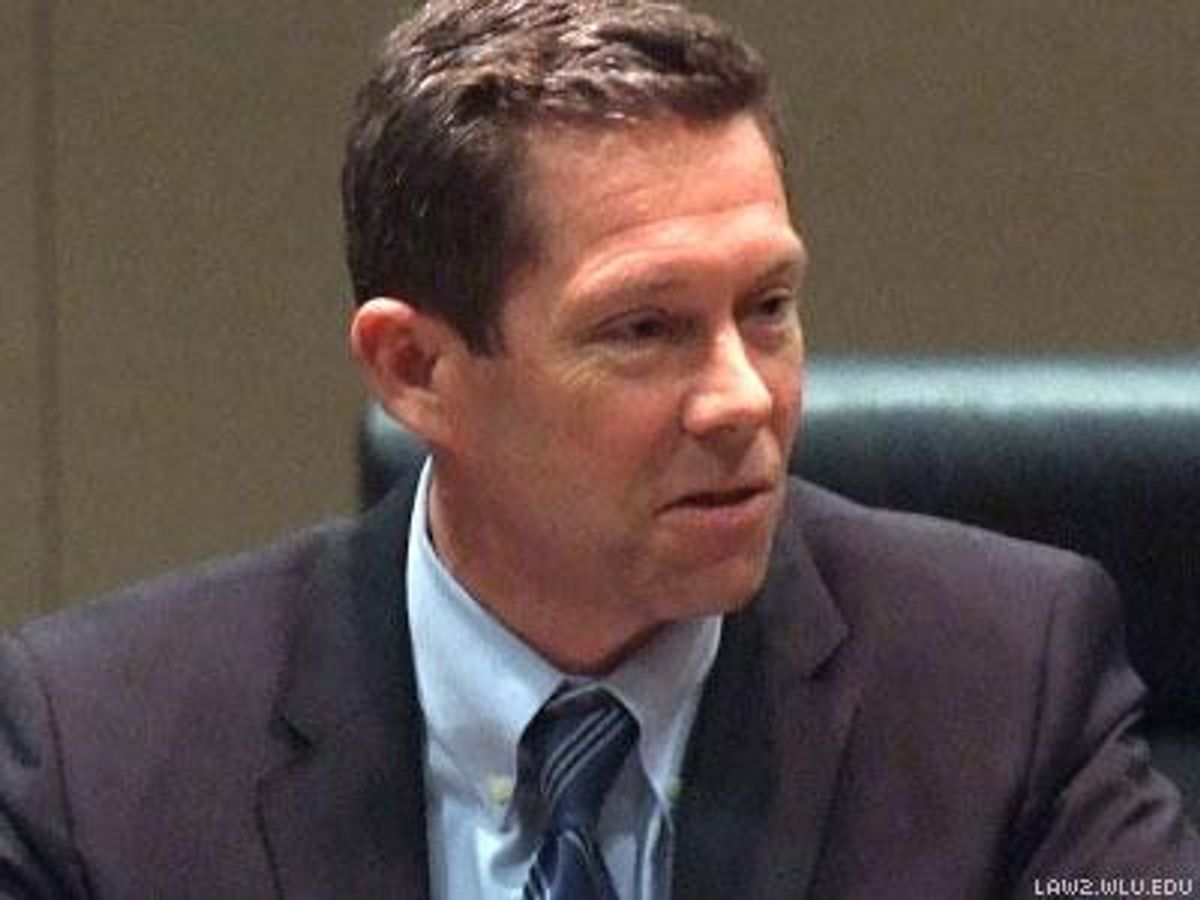
Ohio Judge Jeffrey Sutton's solitary stance on marriage equality offers insight into how conservatives will make their case before the U.S. Supreme Court.
April 24 2015 3:44 PM EST
November 17 2015 5:28 AM EST
Lifeafterdawn
By continuing to use our site, you agree to our Private Policy and Terms of Use.

Remember the name Judge Jeffrey Sutton next Tuesday.
He sits on the U.S. Court of Appeals for the Sixth Circuit in Cincinnati. He is an appointee of President George W. Bush and a former clerk to two Supreme Court justices, including Antonin Scalia, who called Sutton "one of the very best law clerks I ever had."
They're alike in many ways, Scalia and Sutton, and for a long time, the Ohio jurist has been on the short list of Republican names for the high court.
In fact, Sutton's conservative view on the issue of marriage equality is almost identical to Scalia's, and that is perhaps the best reason to remember his name.
Sutton is the author of the lone recent federal appellate decision against marriage equality, upholding same-sex marriage bans in four states November 6 last year. Until that day, there was no conflict among the federal appellate circuits on the question of whether the U.S. Constitution granted a right to marry someone of the same sex.
All three circuits that had ruled since mid-2013 had said yes: the Fourth Circuit, striking down Virginia's law; the Seventh Circuit (Indiana and Wisconsin); and the 10th Circuit (Oklahoma and Utah). But on August 6, 2014. a three-judge panel of the Sixth Circuit, including Judge Sutton, heard a consolidated argument in cases from Ohio, Michigan, Kentucky, and Tennessee.
Three months to the day, Sutton wrote the opinion that went against that avalanche of judicial rulings, one that court analysts say "provides important insight into the legal arguments that could be made before the court by states seeking to uphold bans at a time when the national sentiment is quickly shifting in favor of same-sex marriage."
Supreme Court reporter Ariane de Vogue, an expert in covering the justices for ABC News and now CNN, has summed up the central arguments from his opinion that states seeking to uphold their same-sex marriage bans are expected to echo on Tuesday.
But Ryan T. Anderson of the conservative Heritage Foundation told De Vogue that Sutton "more or less takes each and every argument that the other side has made, and then one by one by one, he explains why it doesn't work."
It is "dangerous and demeaning," Sutton wrote, to the citizenry to assume that only judges "can fairly understand" the arguments for and against same-sex marriage.
"Isn't the goal to create a culture in which a majority of citizens dignify and respect the rights of minority groups?" he asked in the opinion, which was joined by Judge Deborah L. Cook, also a Bush appointee.
Critics such as Jon W. Davidson, legal director of Lambda Legal, have roundly condemned such reasoning.
"The people don't get to decide what the Constitution safeguards," Davidson said. "They don't get to vote to violate the Constitution."
Sutton holds that the Fourteenth Amendment to the Constitution provides no fundamental right to marriage for same-sex couples.
"From the founding of the Republic to 2003, every state defined marriage as a relationship between a man and a woman," he wrote, noting that the "Fourteenth Amendment permits, though does not require, States to define marriage that way."
And his interpretation is that same-sex marriage bans rationally advance a legitimate government policy.
"By creating a status (marriage) and by subsidizing it (e.g. with tax-filing privileges and deductions), the States created an incentive for two people who procreate together to stay together for purposes of rearing offspring."
He said that states should not be accused of "irrationality," but only the awareness that same-sex couples don't have children in the same way as couples of the opposite sex.
Sutton directly addressed questions that this view is antigay: "Ballot initiatives banning same sex-marriage were not driven by hostility but were passed by 'real people who teach our children, create our jobs, and defend our shores,'" De Vogue writes in summing up his reasoning.
Gene Schaerr, a Washington appellate lawyer who help to defend Utah's ban on same-sex marriage, told CNN Sutton's opinion is a road map for whoever might write an opinion supporting state bans.
"He's very much willing both in the result and in his analysis to leave the issue to the people without suggesting an answer one way or another," Schaerr said.
Judge Martha Craig Daughtrey, a Bill Clinton appointee to the Sixth Circuit and the person who compared Sutton's opinion to a TED talk, wrote in her dissent that he failed "to see the plaintiffs as individuals "suffering actual harm."
"These plaintiffs are not political zealots trying to push reform on their fellow citizens, " she wrote, but committed same-sex couples seeking equal status.
Her harshest language was for Sutton's premise that the decision should be left to the democratic process: "If we in the judiciary do not have the authority, and indeed the responsibility, to right fundamental wrongs left excused by a majority of the electorate, our whole intricate, constitutional system of checks and balances, as well as the oaths to which we swore, prove to be nothing but shams."